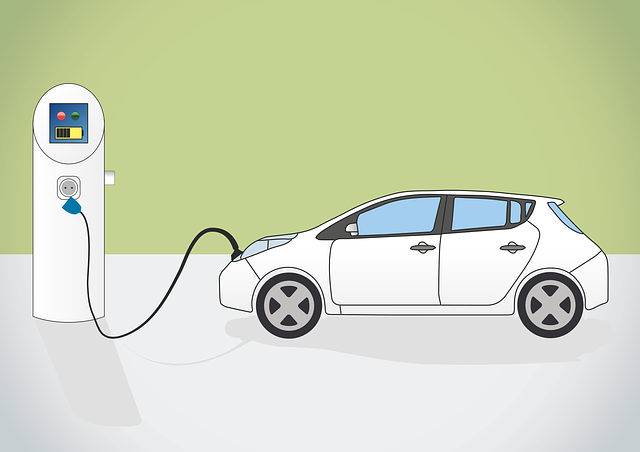Cold weather severely impacts car batteries, necessitating proactive maintenance. Regularly inspect and test batteries for optimal performance, focusing on corrosion, damage, and charging levels. Use free tests at auto parts stores to identify issues early. In cold climates, maintain voltage above 70% and use smart chargers to prevent overcharging. Protect terminals from frost and clean them regularly. Proactive battery health ensures reliable vehicle starts and delays the need for costly replace car battery services during winter.
In the chill of winter, cold weather can significantly impact your car’s battery performance. Understanding how cold temperatures affect your vehicle’s power source is crucial for preventing sudden failures. This article offers three essential tips to keep your battery healthy and charged during colder months. Learn about regular testing, maintaining optimal charging levels, and protecting against frost buildup to ensure your car starts reliably, even in severe winter conditions. Remember, proactive maintenance can save you from an unexpected breakdown, so consider these strategies a must-have for your winter survival kit.
- Understanding Cold Weather's Impact on Car Batteries
- Regularly Test Your Battery for Performance and Health
- Maintain Optimal Battery Charging Levels in Cold Conditions
- Protect Your Battery from Extreme Cold and Frost Buildup
- Replace Car Battery Before Severe Winter Sets In
Understanding Cold Weather's Impact on Car Batteries

Cold weather can significantly impact your car’s battery, making it a crucial aspect to consider for every vehicle owner. As temperatures drop, so does the performance of lead-acid batteries, which is why understanding this relationship is essential when it comes to preventing failure. When cold, the chemical reactions within the battery slow down, reducing its capacity to deliver power effectively. This can result in slower engine starts and even complete battery drain if left in extreme conditions for an extended period.
Regularly maintaining your car battery and considering a timely replace car battery strategy is vital to combat these challenges. It’s recommended to inspect the battery for any signs of corrosion, damage, or leaks, as these can hinder its performance and efficiency. Additionally, keeping the battery charged at optimal levels during colder months ensures it remains in top condition, minimizing the risk of failure and extending its lifespan.
Regularly Test Your Battery for Performance and Health

Regularly testing your car battery’s performance is an essential preventive measure against unexpected failure, especially in cold climates. A simple and regular check can help identify any issues early on. Look for a dedicated auto parts store or service center that offers free battery tests. These facilities use specialized equipment to assess the battery’s voltage, current, and resistance, providing valuable insights into its health. By doing this, you’ll be able to spot any anomalies before they turn into major problems, ensuring you’re always prepared for winter driving conditions.
During these tests, technicians can also recommend whether it’s time for a replace car battery or if simple cleaning and charging might suffice. Regular testing allows for proactive maintenance, extending the lifespan of your battery and reducing the risk of being stranded due to a dead battery during cold weather.
Maintain Optimal Battery Charging Levels in Cold Conditions

In cold conditions, it’s crucial to maintain optimal battery charging levels to prevent premature battery failure. One effective strategy is to regularly monitor and ensure your car battery stays charged above 70%. This can be achieved by frequently using electric accessories like heated seats or a defroster, especially during extended periods of cold weather. Additionally, consider employing a smart battery charger, which can automatically adjust charging levels to prevent overcharging and prolong battery life.
Regularly checking your car’s battery voltage is another key practice. A healthy car battery typically maintains a voltage between 12.6 and 12.8 volts when the engine is off. If you notice consistent readings below this range, it may signal a charging issue or a faulty battery that requires attention, potentially avoiding the need for a replace car battery down the line.
Protect Your Battery from Extreme Cold and Frost Buildup

In cold weather, batteries can struggle to maintain power and start your vehicle. Protecting your car’s battery from extreme cold is a crucial step in preventing failure. Park your vehicle in a garage or covered area to shield it from frost buildup on the battery terminals. Regularly clean these terminals with a wire brush to ensure optimal conductivity. If left exposed, cold temperatures can cause chemical reactions within the battery that reduce its performance and lifespan.
Consider using a battery blanket or insulation to cover your battery if it’s not stored in a warm area. This simple measure helps regulate temperature, preventing rapid discharge and prolonging the life of your car battery, thus reducing the need for a costly replace car battery call.
Replace Car Battery Before Severe Winter Sets In

Before severe winter weather sets in, it’s crucial to prioritize your car’s battery health. One of the best ways to prevent battery failure during cold months is by replacing it proactively. Many people wait until their battery dies completely, but this can leave them stranded in chilly temperatures when their vehicle won’t start. By having a new battery installed before winter arrives, you’ll enjoy peace of mind knowing your car is reliable.
A well-maintained battery ensures your car starts smoothly and efficiently during cold mornings. Extreme cold can cause corrosion on terminals and reduce battery performance, so replacing it becomes even more critical. Regularly inspect your battery for any signs of damage or leaks and address them promptly. Taking these preventive measures will contribute to a smoother driving experience throughout the winter season.
In cold weather, a well-maintained car battery is essential. By regularly testing your battery’s performance, keeping charging levels optimal, and protecting it from extreme cold, you can prevent failure and ensure reliable starting. Remember, proactively replacing your car battery before severe winter sets in can save you from unexpected breakdowns and keep you safe on the road during chilly months.
